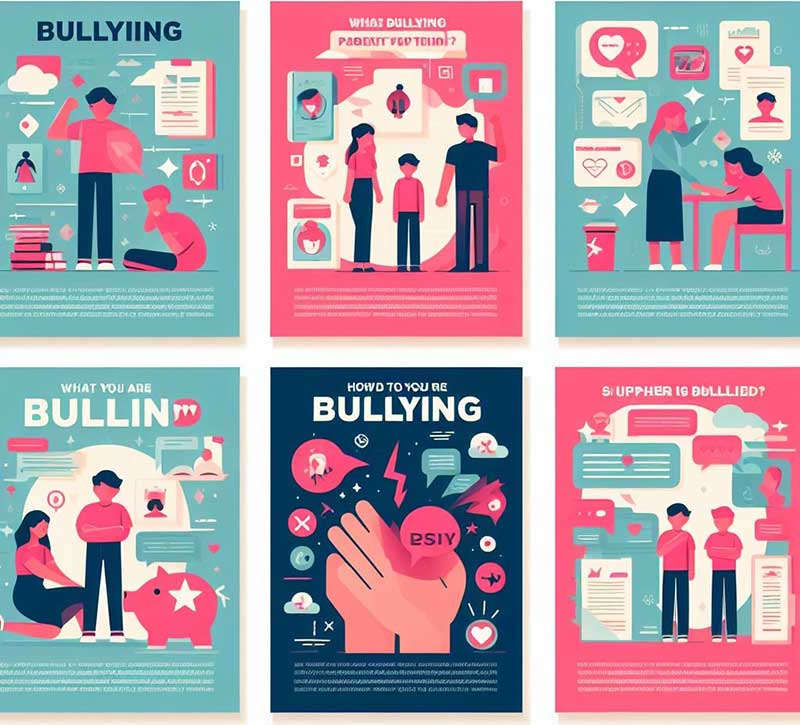Written By: Olivia LePage ~
12/14/2023

Bullying is a serious issue that can have long-lasting effects on children. It can take many forms, including physical, verbal, relational, cyber, sexual, and prejudicial bullying. As a parent, it’s important to recognize the signs of bullying so you can help your child deal with it.
Here are some signs that your child may be experiencing bullying:
- Unexplained injuries: If your child comes home with bruises, cuts, or other injuries that they can’t explain, it could be a sign that they are being physically bullied.
- Changes in eating or sleeping habits: If your child suddenly loses their appetite or has trouble sleeping, it could be a sign that they are anxious or stressed about something, such as bullying.
- Avoiding social situations: If your child suddenly stops hanging out with their friends or participating in activities they used to enjoy, it could be a sign that they are being bullied.
- Declining grades: If your child’s grades suddenly drop without any apparent reason, it could be a sign that they are having trouble concentrating due to bullying.
If you suspect that your child is being bullied, it’s important to talk to them about it and offer your support. However, some kids may be afraid to speak out or having their parents involved.
In such cases, parents can use the following techniques to help their kids:
- Write a letter: Sometimes, it’s easier for kids to express their feelings in writing than in person. Encourage your child to write a letter to you or another trusted adult about what’s going on. You can write to them open-ended questions with a checkbox for them to fill in if it fits their temperament better. Let them know that you’re there for them, and, that you want to help, and that they will not be in trouble for letting you know.
Here are some steps you can take to help your child deal with bullying:
- Listen to your child: Encourage your child to talk to you about what’s going on. Let them know that you’re there for them and that you want to help.
- Take action: If your child is being bullied at school, talk to their teacher or principal about it. They can help you come up with a plan to stop the on-going bullying.
- Teach your child how to respond: Help your child develop strategies for dealing with bullying. For example, they can try to ignore the bully, walk away, or tell an adult.
- Encourage your child to make friends: Having a strong support system can help your child deal with bullying. Encourage them to make friends and participate in activities they enjoy.
- Model positive behavior: Children learn by example, so it’s important to model positive behavior. Teach your child to treat others with kindness and respect.
During the holidays, it’s important to remind your child about the importance of treating others with kindness and respect. Here are some pointers you can give to your child:
- Take a social media break: You can discover a new app that does not include status sharing and competing in numbers of views. Do something else like volunteering, going to the library (there are more than books), or starting a new project.
- Speak up: If you know someone being bullied, speak up and tell an adult.
- Be kind: Speaking up is an act of kindness. A person bullying is a person without the tools necessary to cope with an event or situation in their lives. It is a cry for help. Speaking out is a way to help them.
- Take a break: If you’re feeling overwhelmed or stressed, take a break and do something you enjoy, such as reading a book or going for a walk.
Every day is a chance to start fresh and take new actions
Sources:
Kidshealth.org
stopbullying.gov
